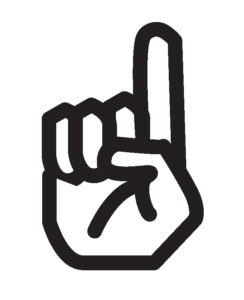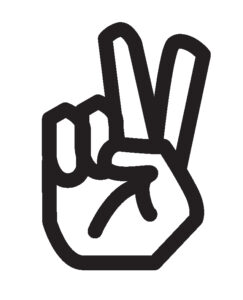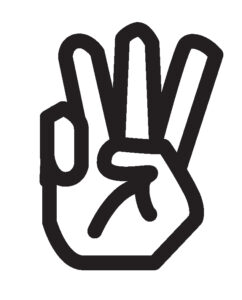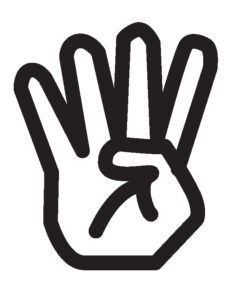 DIGNITY OF THE PERSON
DIGNITY OF THE PERSON
In a just social order, dignity, rights and power start with the human person — each one of us — not with “social tools” like the State, institutions and collectives, or with any elite. To participate fully, each person must have full access to the “Common Good” in its entirety. (The “Common Good” is defined here as the interconnected network of institutions — including the family, the State, organized religion, laws, the monetary and tax systems, etc. — that support the empowerment and development of each child, woman and man within a society.)
Social Justice is the virtue that governs the relationship of the human person to his or her institutions. It requires that every institution support the dignity, empowerment and fullest development of every person at every level — from the smallest group to national and global society. In turn, Social Justice imposes a strict responsibility on every person to organize with others to correct defective or unjust institutions when they diminish the dignity, empowerment and full development of anyone.
 TWO (BINARY) FACTORS OF PRODUCTION
TWO (BINARY) FACTORS OF PRODUCTION
There are two interdependent factors that contribute to production of marketable goods and services: “Labor” (all human inputs) and “Capital” (all non-human inputs). By contributing one’s labor and/or one’s capital, each person is entitled to his or her proportionate share of the resulting incomes. The most democratic and just way to determine each person’s “fair share” is within free, open and anti-monopolistic markets. Such markets can only exist when there is broad-based capital ownership and equal access of every person to the means of acquiring productive capital assets, without taking away property rights from current owners. A just market system automatically determines the “market price” of goods and services, and measures the relative value of each person’s labor and capital contributions.
 THREE PRINCIPLES OF ECONOMIC JUSTICE
THREE PRINCIPLES OF ECONOMIC JUSTICE
- The Input Principle (Participative Justice): Every person must have the equal right and opportunity to contribute as needed to economic production through his or her labor and/or capital;
- The Out-take Principle (Distributive Justice): Every person must have the equal right and opportunity to receive his or her proportionate share of the economic rewards/incomes distributed, based on that person’s market-valued contribution of labor and/or capital;
- The Feedback and Corrective Principle (Social Justice): All institutions, and specifically economic institutions, require the constant balancing and rebalancing of Participative Justice (measuring total Production inputs) and Distributive Justice (measuring total earned Consumption incomes). When either of these principles are violated, the governing principle of Social Justice demands that the defect or barrier causing the injustice be removed or corrected. Co-authors Louis Kelso and Mortimer Adler referred to this third principle as the “principle of limitation,” “anti-monopoly principle” or “anti-greed principle.” The broader concept of Social Justice, however, includes these concepts but also guides us in correcting unjust systems and institutions. By working with others to identify systemic defects and organize peacefully to develop a systemic solution, we can restore balance between Participative and Distributive Justice.
 FOUR ECONOMIC POLICY PILLARS
FOUR ECONOMIC POLICY PILLARS
- The universal human right of access and equal opportunity for every person to acquire and share power and profits as an owner of productive capital assets.
- Limited economic power of the state.
- The full rights of private property. (These include the right to the fruits of, and control over, what one owns, with the limitation that one’s property cannot be used to harm another’s person, property or the general welfare.)
- Free, open and anti-monopolistic markets for determining just wages, just prices and just profits.
 FIVE LEVERS OF CHANGE
FIVE LEVERS OF CHANGE
- Education
- Money, Credit, and Banking
- Tax System
- Technology
- Politics